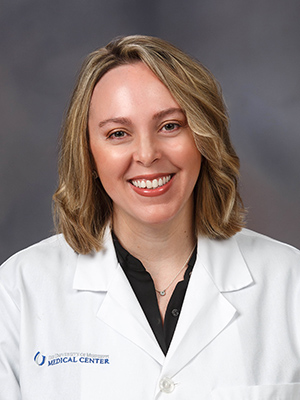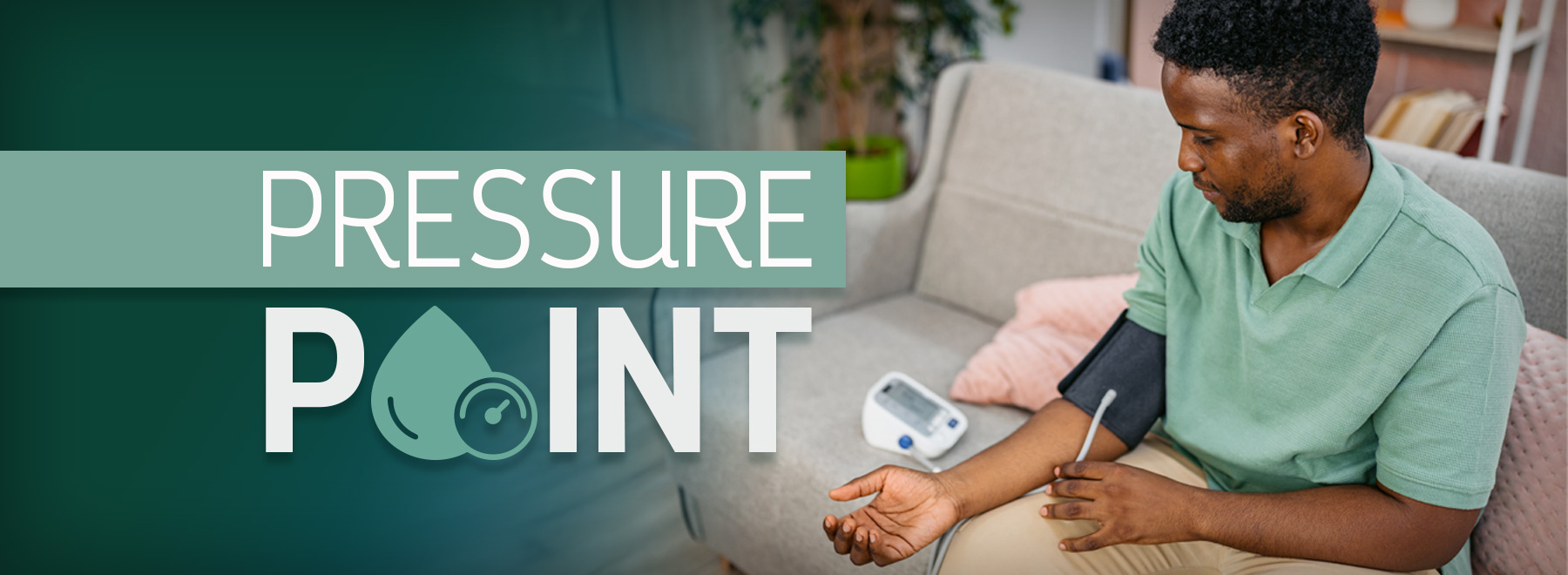Here’s how, and why, you should monitor your blood pressure at home
Think of your blood pressure checks as a team sport.

Your primary care giver – someone like Dr. Jessica Douglas, for instance – is one part of the team. She’s an assistant professor of family medicine at the University of Mississippi Medical Center.
The other half of the team? That’s you.
“It helps us when you, the patient, are on the team, too,” Douglas said.
That is, it helps when you take it upon yourself to monitor your blood pressure.
Blood pressure – the force needed to push blood through your arteries – can rise or fall dramatically depending anything from traffic jams to caffeine, not to mention a common condition called white coat hypertension.

“That’s when individuals experience higher blood pressure readings in a clinical environment, such as a doctor’s office or hospital, compared to blood pressure readings at home,” said Dr. Kristen Alston, UMMC associate professor of family medicine and a clinical health psychologist.
“This can be triggered by the anxiety or stress of being in a medical setting.” That’s why it’s useful to take more than one reading at a doctor’s office.
It’s difficult to nail down the frequency of white coat hypertension among patients; estimates range from 10% to 50%, “depending on the definition used and the population being studied,” Alston said.
But Douglas can tell you this: “We see it all the time. Which is why home blood pressure monitoring, and remote patient monitoring through Telehealth, is so helpful."
On top of stressors such as exercise or anxiety, blood pressure naturally goes up and down throughout the day, Douglas said. For many in Mississippi, it is chronically high.
Around 44% of adult Mississippians – nearly 1 million – had hypertension in 2021, the Mississippi State Department of Health reports. For those older than 65, the rate was above 73%.
Guidelines from the American Heart Association define normal blood pressure as below 120/80; elevated, 120-129/80; stage 1 hypertension, 130-139/80-89; stage 2 hypertension, 140/90 or higher.
With hypertension, the risk grows for heart attack, stroke, kidney disease, cognitive decline and dementia.
Because there is so much at stake, it’s important to take your blood pressure at home, too. “You can work with your doctor to adjust your medications and get you better results,” Douglas said.
Still, a monitor’s cuff size can affect readings: Too big and your blood pressure may be higher than the number on the machine. Too small, and it may be lower.
The best monitors have a cuff that fits on the upper arm, Douglas said. These inflate automatically and record the pressure; some store readings for a week or so. There are also wrist devices, which must be held at the same level as your heart.
Many monitors range in price from about $50 to $100, although some stores and pharmacies sell models starting at around $19. “Often, insurance will cover the cost,” Douglas said.
Douglas will ask her patients to bring their monitors to the clinic. “We check them to see if their readings are close to the ones we’re getting,” she said.
Here are more tips for blood pressure monitoring at home:
For greater accuracy, the American Heart Association recommends taking at least two readings one minute apart, Alston said.
Pick a time – one you’re likely to remember, Douglas said. Say, in the morning: Before your coffee and activity. And do it while seated, feet flat on the floor.
Keep a record of your readings, including the times, and share these logs with your doctor.
If it’s high, take it again when you’re calm, after 10 minutes or so, but don’t check it obsessively if you feel normal and don’t have symptoms of hypertension, such as chest pain, shortness of breath, sudden headaches or sudden vision changes.
Remember this, though: “Checking blood pressure at home is not a replacement for seeing your physician,” Alston said.
“Visit your physician and check your blood pressure regularly.”
To make an appointment with a primary care giver at UMMC, go here.
The above article appears in CONSULT, UMMC’s monthly e-newsletter sharing news about cutting-edge clinical and health science education advances and innovative biomedical research at the Medical Center and giving you tips and suggestions on how you and the people you love can live a healthier life. Click here and enter your email address to receive CONSULT free of charge. You may cancel at any time.



